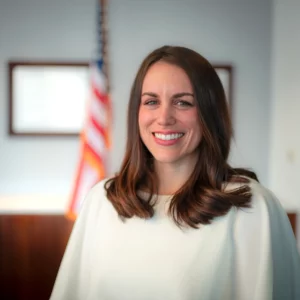
Written by Christine Cooke Fairbanks
October 20, 2022
Hello followers of Sutherland Institute,
My name is Christine Cooke Fairbanks, and I am thrilled to be (re)joining the Sutherland Institute team as the education policy fellow.
During my previous time with Sutherland, I got to know many of you as trusted collaborators on issues like innovation in schools, parental rights, the teaching profession and civics education.
Now, after having the privilege of growing my family and the opportunity of working at the BYU Law School, I am excited to embark on a new era at Sutherland with a refined research focus. My research will seek to answer an important question: what would Utah education look like if state and local public policy fully embraced the full diversity of school options?
Since Utah law authorized charter schools in the 1990s, Utah has had a vibrant policy debate about whether to fully embrace school diversity, including whether and how taxpayers should support district schools, public charter schools, virtual schools, private schools and home schools. In the meantime, education pluralism has been trending regionally and nationally. And long ago, Utah’s neighbor to the south, Arizona, embraced the approach of school diversity in an attempt to benefit the broadest set of student learning needs as possible. As is true for most education policies, this has likely had its upside and its downside. As such, a deep-dive study of Arizona can help Utahns see where robust diversity of school options can lead and the pitfalls to avoid.
The Grand Canyon State was originally my home state, where I was born and where I received my law degree. Arizona is known for sunshine, hot summers, golf courses, and, in recent decades, novel approaches to education policy. With time, it has created a landscape of diverse educational options and has caught a lot of attention – good and bad – for doing so. Arizona is a fascinating case study in the impact of a course change in public policy toward diversity in schools of all types, educators, parents and most importantly students.
In our republic, individual states have distinct values, needs, demographics and laws, and rightly so. But no state lives in a total vacuum, unaffected by the policy debates raging around it. National and state policies often impact other states. Researching policies outside of Utah can help Utah policymakers decide what ideas to adopt, avoid or adapt for its own benefit.
As I head back to Arizona, I am excited to enjoy temperate winters once again, but I am also grateful to maintain a place within Sutherland Institute’s walls to convene, discuss and pursue the best public policies. This natural expansion of Sutherland’s research scope is an opportunity to grow our aspirations to make sound ideas broadly popular, promote trust in civic institutions and preserve liberty, as we have always sought to do. I look forward to getting started.
Warmly,
Christine Cooke Fairbanks
More Insights
Read More
What you need to know about the upcoming state party conventions
The two major political parties are about to hold their state conventions. Here’s what you need to know.
Here’s why the First Amendment’s religion clauses are not in conflict
Some suggest there is a tension between protection for the free exercise of religion and the prohibition on the establishment of religion. But a better take is to see the two clauses as congruent.
Is California’s minimum wage hike a mistake?
Is raising the minimum wage a good tool to help low-income workers achieve upward mobility? That’s the key question at the heart of the debate over California’s new $20 an hour minimum wage law for fast food workers.



